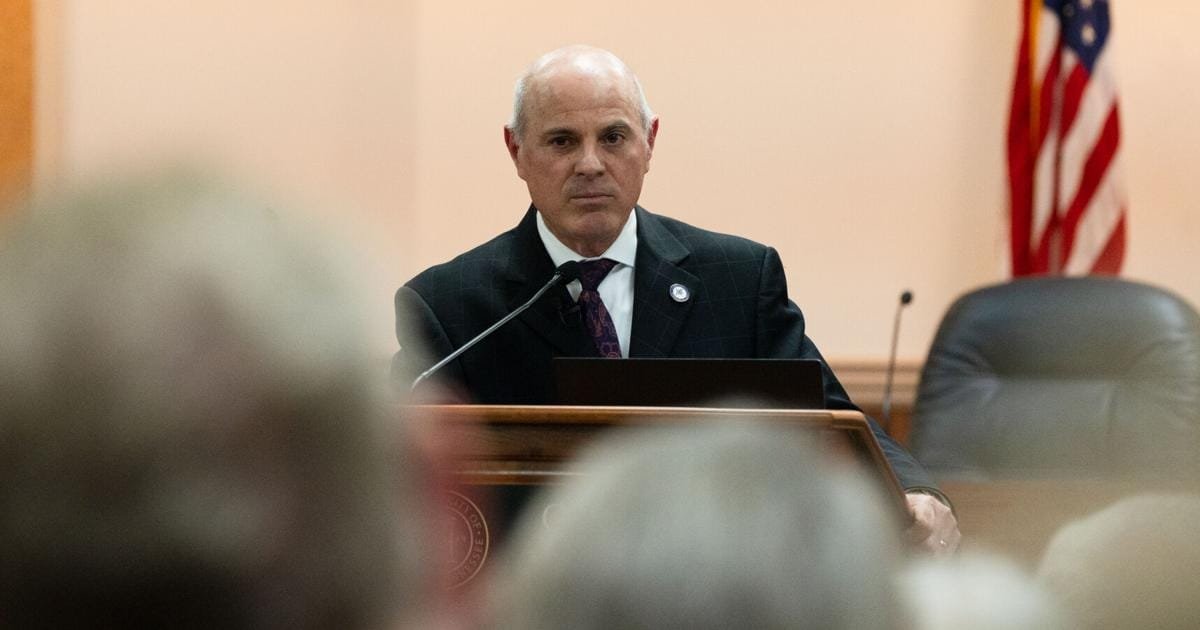State Rep. Gino Bulso (R- District 61) held a second town hall meeting to discuss current state legislation in Franklin last Friday. While not as explosive as his meeting in Brentwood in March, many constituents asked hard questions about the education freedom scholarships (EFS) bill and other educational issues facing the state.
Bulso began the meeting with explanations of a few bills circulating through the capital, including the Baby Olivia bill which would add a controversial video to the state family life curriculum, and Gov. Bill Lee’s Education Freedom Scholarships bill. Then things got interesting when Bulso opened the floor to questions.
Audience members jumped straight to the tough questions, asking how the House and Senate would be able to reconcile the major differences in their EFS legislation, how successful the pilot education savings act (ESA) has been in Davidson, Shelby and Hamilton counties and what problem the EFS bill is actually trying to solve.
According to Bulso, the House and Senate versions of the bill are drastically different, but members of both bodies are working together (sometimes behind closed doors) to find a way forward. While Bulso said he doesn’t agree with several parts of the Senate bill, he did not confirm whether or not those would prevent him from voting for the final joint bill.
Citizens and officials following the EFS process know that the pilot programs that have been active in Davidson, Shelby and Hamilton counties for a few years have not shown improvement in students’ test scores. Bulso said he measures the success of those programs in two ways: parental satisfaction and academic improvement.
“When you look at the satisfaction level of the parents who are participating in the ESA program, yes, it’s an overwhelming success. Ninety-nine percent of the parents are satisfied with the program,” Bulso said. “When you look at just the raw test scores, then you would say no, it hasn’t been successful.”
A question that was raised at the event in Brentwood last month was repeated in Franklin: How will EFSs help fix problems with public education?
The House bill currently goes beyond just the EFS program and provides increased pay and benefits for teachers –—a positive for many supporters of public education — but some constituents question the state’s priorities.
“The House bill quite frankly tries to put honey on a lot of poop by giving teachers raises and increasing their health care benefits,” said Peggy Kingsbury from the audience. “If the state can afford to do that, why don’t we do that now to help our teachers?”
Bulso recognized that the bill is not a one-size-fits-all solution to public education. Instead, he noted the increases in education funding the state has passed in recent years and argued that the EFS bill is a starting point to help some families.
“This bill is not going to fix all of the problems with the public school system,” he said. “It’s only going to give some parents a chance to give their kids the kind of education they think their kids deserve and for that reason I think it’s still worth doing.”
Gary Humble, a Republican candidate for the state Senate (District 27), asked what long-term effects this legislation could have on private education and the private sector.
“What makes a private school private is the fact that it is privately funded,” Humble said. “I would suggest that this legislation is fundamentally changing the nature of, legally, what makes a private school private.”
Noting the HOPE scholarship, which helps Tennessee students pay for tuition at any higher education institution in the state, Bulso claimed the government is already funding private education without over-regulating it — a comparison Humble called “apples to oranges.”
After an hour of questions, Bulso ended the meeting with hands still raised. While much of the room left unsatisfied, the representative tried to ensure his constituents throughout the meeting that it’s unlikely EFSs will have much of an impact on Williamson County. However, no one knows how this legislation will turn out or how it could affect public schools across the state.













